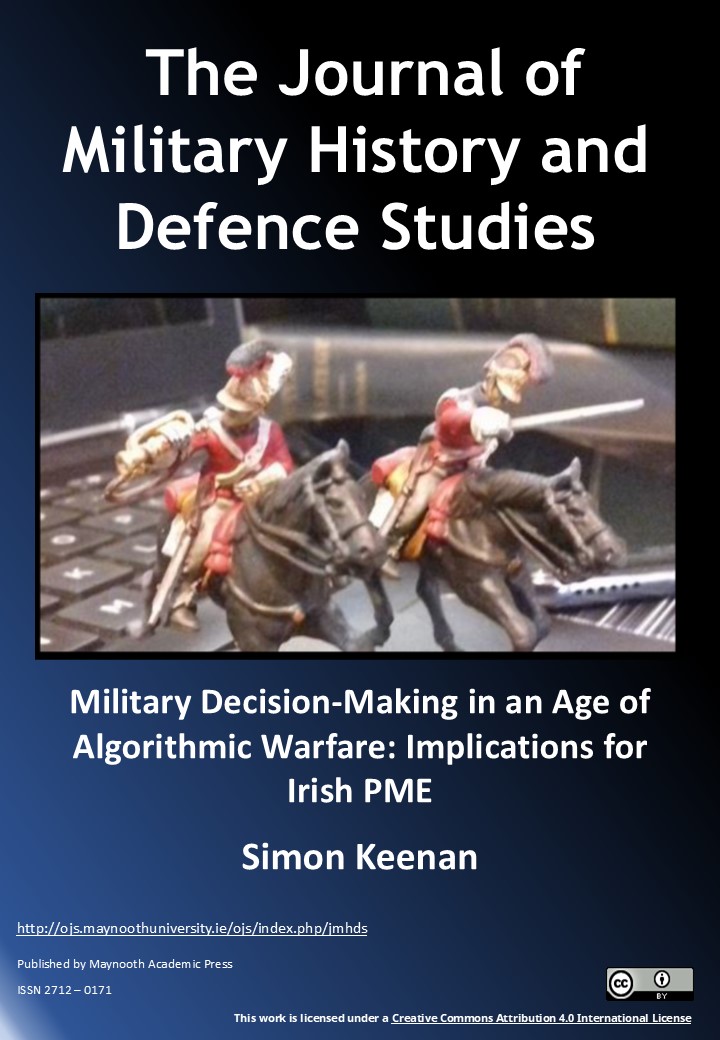Military Decision-Making in an Age of Algorithmic Warfare: Implications for Irish PME
Keywords:
PME, Professional Military Education, algorithmic warfare, military decision makingAbstract
This paper examines the implications of algorithmic warfare for military decision-making and professional military education (PME), with a particular focus on the Irish Defence Forces (Óglaigh na hÉireann). Emerging technologies such as artificial intelligence (AI) and autonomous systems are transforming the character of war, accelerating decision cycles, and challenging traditional linear planning frameworks such as the Military Decision-Making Process (MDMP) and NATO’s Operational Planning Process (OPP). While these processes have historically provided structure and predictability, they prove increasingly inadequate in volatile, uncertain, complex, and ambiguous environments shaped by digital interconnectivity and hybrid threats. Algorithmic warfare introduces both opportunities and risks. AI-enabled systems can automate data collection, analysis, and decision support, but they also amplify challenges related to bias, opacity, and automation dependence.
The paper situates these developments within the broader debate on PME, tracing its evolution from Huntington and Janowitz’s sociological foundations through the academisation of military education in Western institutions. It argues that Irish PME, currently oriented toward accreditation and linear problem-solving, must adapt to foster sense-making, adaptability, systems thinking, and digital fluency. Three central implications for PME are highlighted: cultivating trust in AI through ethics and explainability, leveraging diversity of thought across military, academic, and civilian communities, and reorienting pedagogical approaches toward scenario-based learning, wargaming, and inter-disciplinary innovation. Ultimately, the paper contends that for Óglaigh na hÉireann to become an agile and fit-for-purpose military force, PME must undergo a cultural and structural evolution. Preparing leaders to critically engage with emerging technologies and embrace complexity is not optional, but a strategic necessity in the age of algorithmic warfare.


 This work is licensed under a
This work is licensed under a 
